DHCRC held its inaugural Curiosity Camp at Lake Crackenback in NSW from 13-17 November 2023.
Curiosity Camp is an immersive learning experience designed to solve real-world healthcare problems and deliver impact by harnessing the power of evidence, codesign, and collaboration.
Five tribes, comprised of DHCRC emerging leaders, consumers, innovators, and researchers, formed around industry challenges and spent the week together unpacking opportunities and conceptualising solutions.
The topics tackled at the camp included interdisciplinary blind spots, standardising language, patient flow, metabolic health and women’s health and outputs included research plans, community of practice proposals, op-eds, and open-source software and programs. The next stage of the Curiosity Camp journey will see DHCRC support further development of these outputs to help drive change and deliver outcomes for the healthcare sector.
The problems and opportunities identified, and outputs produced from Curiosity Camp are summarised below.
Topic 1: Interdisciplinary blind spots
Led by Jade Barclay from Delphi Institute
Problem
Although patients are more likely to have multiple health conditions, research focusses on single/index conditions.
Opportunity
When research includes people with multiple health conditions, research, policy and practice will better reflect real world needs.
Key Curiosity Camp outputs
A research and community of practice proposal to build an evidence base and network to guide development of policy briefs, media releases and op eds to raise awareness and advocate for change to reduce interdisciplinary blindspots.
Topic 2: Standardising language
Led by Guy Tsafnat from Evidentli
Problem
When patients create advanced care plans, they aren’t reliably implemented by their care team or integrated into the health system.
Opportunity
Standardising language in advanced care planning will help improve implementation within the health system.
Key Curiosity Camp outputs
Early-stage development of a standard terminology dictionary for advanced care planning and open-source software to support the dictionary.
Topic 3: Patient flow
Led by Dale Trevor from Champion Health Agency
Problem
Patient and hospital flows are inefficient causing longer stays and increased hospital burden. We know that good care (treating people like family) shortens patient stay increasing flow.
Opportunity
Reducing avoidable and unnecessary admissions burden can help improve hospital burden. Additionally, improving the skills and knowledge of teams which implement patient flows will improve patient journeys, hospital burden and clinical outcomes.
Key Curiosity Camp outputs
Two research proposals, one that aims to identify the best performing care teams and what sets them apart so this can be replicated and, another, to determine which admissions are avoidable to reduce hospital burden.
Topic 4: Metabolic health
Led by Tim Veron from Vively
Problem
Australia is in the midst of a metabolic health crisis and targeted research is required to identify potential causes and solutions in the Australian healthcare system.
Solution
An emerging evidence base including research programs to inform the role of continuous glucose monitors in addressing metabolic health.
Key Curiosity Camp output
A comprehensive research roadmap and open-source research plan to engage students in internship and innovation opportunities on metabolic health.
Topic 5: Women’s health
Led by Georgie Drury from Metluma
Problem
Women in leadership positions decrease after age 45 while men in the same age bracket increase.
Opportunity
To determine if the decline of women in leadership roles after age 45 is due to menopause.
Key Curiosity Camp outputs
A research plan and op ed to further understand and communicate the women in leadership inequity and inform the design of solutions to resolve it.


